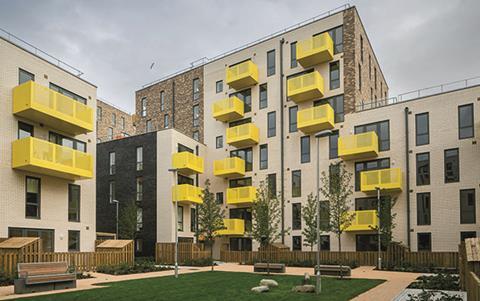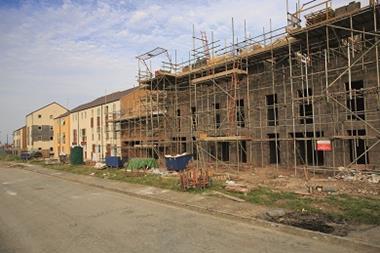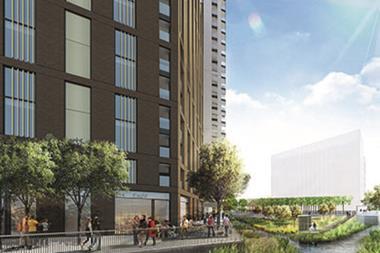The private rented sector (PRS) has been tipped to thrive following the EU referendum, as investors look for stable, long-term income amid all the Brexit vote uncertainty.

One developer that could be set to benefit is Fizzy Living. Here Harry Downes, managing director of the firm, which has big PRS blocks all over London, tells Property Week how he sees the market developing in the immediate future.
Following the Brexit vote, are housebuilders increasingly looking for PRS partners?
We’re certainly having more meetings with developers and housebuilders. Over the past few years the market has been very strong for off-plan sales to investors, [so developers] haven’t really needed to speak to us. Obviously the discount [off the value] that we need to level the playing field tends to make them run a mile. But needs must. And as a non-conflicting de-risker, we offer them a very good long-term bet. That’s what’s generating the calls now.
Are any deals imminent?
It takes a while to get these things over the line, so until people have actually exchanged contracts anything can go wrong. We’re certainly not at the point of getting close to doing any deals, but we are having discussions with people, and I see a much better chance of [them] ending up in a deal. Some [developers] don’t feel ready yet to engage, some of them do.
Is your business set up to weather a Brexit slowdown?
We set up this business with the specific aim of housing young Brits who had been priced out of house ownership. So we don’t see any potential downside for our model. In fact, we see an upside because opportunities will come forward that maybe wouldn’t have done had it not been for the uncertainty caused by Brexit. As far as our tenants are concerned, we’re currently leasing up our building in Lewisham, and we’re seeing record rates of signing up. The overall thing is, the build-to-rent and PRS sectors are contra-cyclical, so any time there’s a wobble in the market we prick up our ears.
What trends do you see emerging in the next year?
I think the new team in City Hall, led by [deputy mayor for housing] James Murray, really gets PRS and understands why nine times out of 10 we’re not viable when we’re in competition with housebuilders and developers. If the next 10 months is the period when we can level that playing field, it means that a huge number of sites could be brought forward for PRS that just aren’t viable at the moment. I’m hoping this year will be the year - we’ve got a new PM, a new mayor, a new housing team; people who absolutely get there’s a problem.

What policy changes do you think are needed?
All it’s going to take is a slight tweaking of the planning rules, so we can give, say, a 25-year covenant to have discounted market rent. We could have that in lieu of social rent, so it’s doing the same job with a different name. If that happened it would mean that our business model, in valuation terms, would equate with housebuilders and developers, and immediately things would get going.
What would that involve specifically?
If we were just told what the levels of maximum rent were for their discounted market rent flats, and the salary caps for people to qualify for them, that would mean we could properly work on viability.
They might say 20% of the flats have got to be 80% of the market rent. We need to go into things with the assumption of planning approval. If you’re always losing, it costs too much to keep applying. All we need is certainty.
Are you working with James Murray on this?
I had a one-on-one with him last week. He completely understands, but he’s got to jump through hoops at his end to get these ideas turned into law.
Get James Murray’s thoughts on London’s housing conundrum at RESI 2016
Do you think the government is willing to reconsider its push for home ownership?
Having home ownership as the one policy is absolutely wrong. If you steer people into home ownership who require a 95% mortgage, you are doing exactly the wrong thing.
Even if interest rates go up to 5 or 6%, not a surprising level, a huge proportion of homeowners would not be able to afford their repayments.
What do you think of the government’s starter homes policy?
I think it is wrong and dangerous. It would be far better to bring in a good rental product so people get the opportunity to rent for as long as it takes them to save up enough money to put down a deposit they can afford.































No comments yet